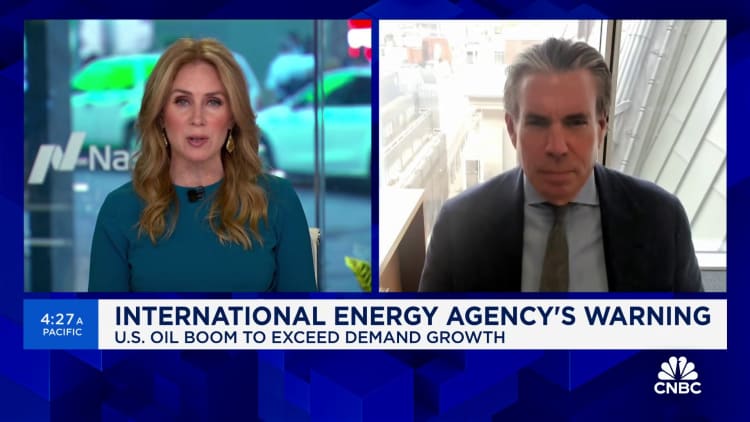- Oil prices are up more than 4.5% for the week, the strongest gains since early April.
- Oil remains well below annual highs set in April but has regained ground after a sell-off last week pushed prices to four-month lows.
- Analysts say a tighter market in the third quarter should lift prices.
Crude oil futures rose for a fifth day Friday, on pace for the best week in more than two months as analysts see a tighter market heading into the third quarter.
Oil prices are up more than 4.5% for the week, the strongest gains since early April, when futures rose on boiling geopolitical tensions in the Middle East.
Here are today’s energy prices:
- West Texas Intermediate July contract: $78.93 per barrel, up 25 cents , or 0.32%. Year to date, U.S. oil is up 10%.
- Brent August contract: $83.14 per barrel, up 39 cents, or 0.47%. Year to date, the global benchmark is ahead 7.8%.
- RBOB Gasoline July contract: $2.43 per gallon, up 0.95%. Year to date, gasoline is up 15.9%.
- Natural Gas July contract: $2.92 per thousand cubic feet, down 1.12%. Year to date, gas has climbed 16%.
Though the market has largely shrugged off geopolitical risk and refocused on fundamentals, RBC Capital Markets cautioned investors to keep a close eye on an increasingly precarious situation on the Israel-Lebanon border.

“We are closely watching whether Benny Gantz’s departure from the Israeli wartime cabinet will tip the scales in favor of a ground operation aimed at pushing Hezbollah back from the border,” Helima Croft, head of global commodity strategy, told RBC clients in a note Thursday.
Oil remains well below annual highs set in April but has regained ground after a sell-off last week that pushed prices to four-month lows after a decision by OPEC+ to increase production later this year
“We stay with our tactical long crude recommendation, as our expectations for rising seasonal summer demand and lesser step-up in supply remain intact,” Deutsche Bank analyst Michael Hsueh told clients in a note on Thursday.
Deutsche sees the oil supply deficit expanding to nearly 1 million barrels per day in the third quarter, which should support Brent prices rising to the mid-to-upper $80s per barrel range.
“It would only take a minor overshoot to bring Brent to around USD 90/bbl at some point during the second half,” Hsueh told clients.
Citigroup also sees a tighter market in the third quarter, though the market will likely enter a surplus in 2025 on solid production growth and slowing demand, according to the bank.














